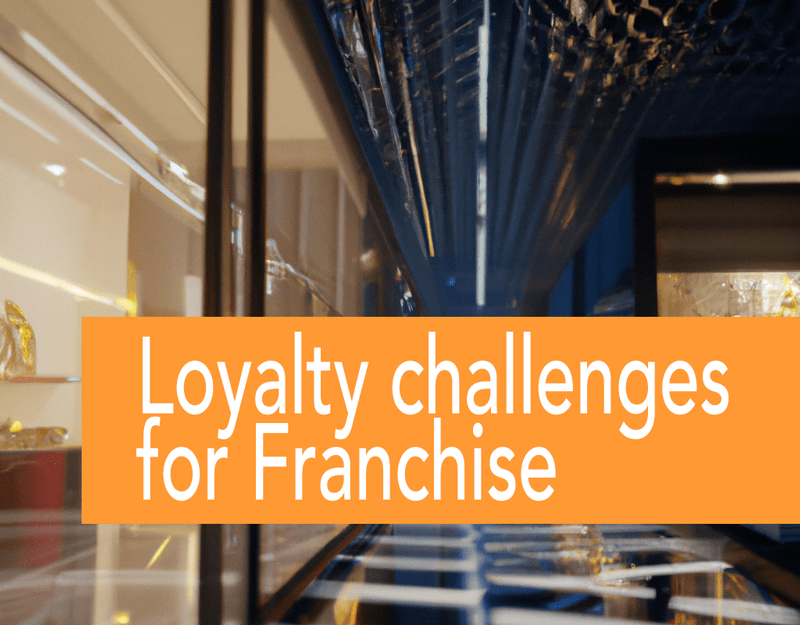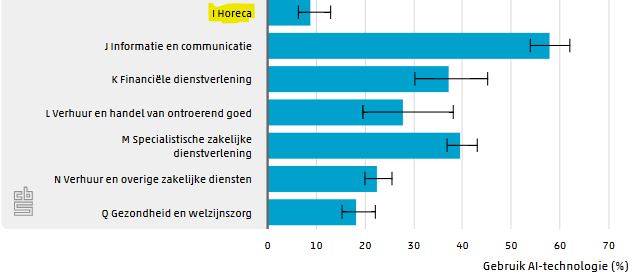A new concept is emerging: vibe marketing. Coined in tech, vibe marketing now describes a hands-on-yet-automated approach to managing customer engagement. In loyalty marketing, it means using intelligent tools to create highly personalized, data-driven programs—without getting lost in technical complexity. Rather than replace marketers, vibe marketing frees them to focus on strategy and creativity. For those looking to scale loyalty efforts with precision and agility, VEMT provides the structure and automation needed to bring the right “vibe” to every customer interaction.

Loyalty programs for franchise can be challenging
To set up and maintain a loyalty programs can be challenging for franchise formulas. They have long been recognized as powerful tools for building customer loyalty and driving business growth, but for franchise formulas, implementing and managing loyalty programs can present unique challenges.
In this article, we’ll delve into the specific challenges that franchise loyalty programs face, shedding light on the complexities of customer data integration, brand alignment, franchisee engagement, program funding, and effective communication and training.
Customer Data Integration and Technology
Integrating customer data into a single, comprehensive database can be a daunting task in a franchise model or net work. With a possible wide variety of (outdated) point-of-sale systems, databases, and customer management tools being used across various franchise locations, achieving a unified view of customer information becomes quite complex. This tool-diversity makes it challenging to seamlessly integrate and analyze customer data to derive meaningful insights and it’s a number one reason why loyalty program often are not even considered by franchise formulas (look for a solution here).
Brand Alignment and Franchisee Customization
Franchisees, as independent business owners, may have varying levels of adherence to brand standards. This diversity poses a challenge when it comes to maintaining brand alignment while accommodating franchisee customization requests. Franchisees often aim to tailor the loyalty program to suit the specific needs and preferences of their local markets. Balancing brand consistency with franchisee autonomy can create complexities in program design and implementation.
Furthermore, franchisees often operate with different operational capabilities, levels of customer service and (local) marketing strategies. These variations add an additional layer of complexity, as loyalty program initiatives need to account for these differences and ideally require a cohesive customer experience across the franchise network.
Securing Franchisee Engagement and Buy-In
Franchisees, driven by their independent business goals and priorities, may initially be skeptical about the value and benefits of a loyalty program. Convincing them of the program’s value and aligning it with their objectives requires effective communication, training, and ongoing support. Franchisors must invest time and effort into engaging franchisees, helping them understand the potential positive impact of the loyalty program on their business, and fostering a sense of ownership and buy-in (look for a solution here).
Program Funding / Cost-Sharing
The financial structure of a loyalty program can be more challenging in a franchise model. Determining the cost-sharing arrangement between the franchisor and franchisees must strike a balance that is fair and transparent. Franchisees may have different financial capabilities, profitability levels, and sizes, making it necessary to establish a funding model that incentivizes their participation without overburdening their resources (discuss your cost model with us, or hear about our innovative solutions).
Communication and Training
Effective communication and training play a vital role in the success of a franchise loyalty program. Ensuring that franchisee staff thoroughly understand the program’s mechanics, benefits, and communication strategies is crucial. However, achieving consistent training and support across a geographically dispersed franchise network can be logistically demanding. Additionally, onboarding new franchisees and aligning them with the program’s objectives and operational processes presents a unique challenge.
Conclusion
While loyalty programs can be immensely beneficial for franchise formulas, it’s important for marketing professionals to be aware of the challenges they may encounter. From customer data integration and brand alignment to securing franchisee engagement, funding considerations, and effective communication and training, these challenges require careful planning and strategizing. By understanding these hurdles and developing tailored solutions, marketing professionals can overcome these challenges and create loyalty programs that drive customer engagement, enhance brand value, and contribute to the growth and success of the franchise formula.
Consider discussing your specific use case with us.
Question 1:
How can franchises effectively integrate disparate customer data systems across various locations to create a unified loyalty program database?
Answer:
Franchises can leverage a cloud-based loyalty platform, like VEMT, that offers robust integration capabilities with various point-of-sale (POS) systems and databases. VEMT aggregates data from different sources into a centralized database, ensuring a unified view of customer information. Implementing middleware or using APIs for system integration facilitates seamless data flow between systems. Additionally, data cleaning and standardization processes ensures the quality and consistency of the integrated data, making it actionable for loyalty program applications.
Question 2:
What strategies can be employed to balance brand consistency with the need for franchisee customization in loyalty programs?
Answer:
To balance brand consistency with franchisee customization, franchises can develop a flexible loyalty program framework that outlines core brand elements and standards while allowing for localized adjustments. This framework could include a set of customizable program features, such as reward options, promotional materials, and customer engagement tactics, that franchisees can tailor to their local market needs. Regular communication and collaboration between the franchisor and franchisees, through advisory councils or regular meetings, can further ensure that customization efforts align with overall brand values and objectives.
Question 3:
What innovative funding models can be explored to support the implementation of loyalty programs in franchise models?
Answer:
Innovative funding models for franchise loyalty programs can include tiered contributions based on franchise size, revenue, or profitability, ensuring that smaller franchisees are not disproportionately burdened. Another approach is to implement a performance-based funding model, where contributions are aligned with the benefits received from the program, such as increased sales or customer engagement metrics. Additionally, franchisors can explore external funding options, such as partnerships with suppliers or vendors, who may be willing to co-fund the loyalty program in exchange for promotional opportunities within the franchise network.





